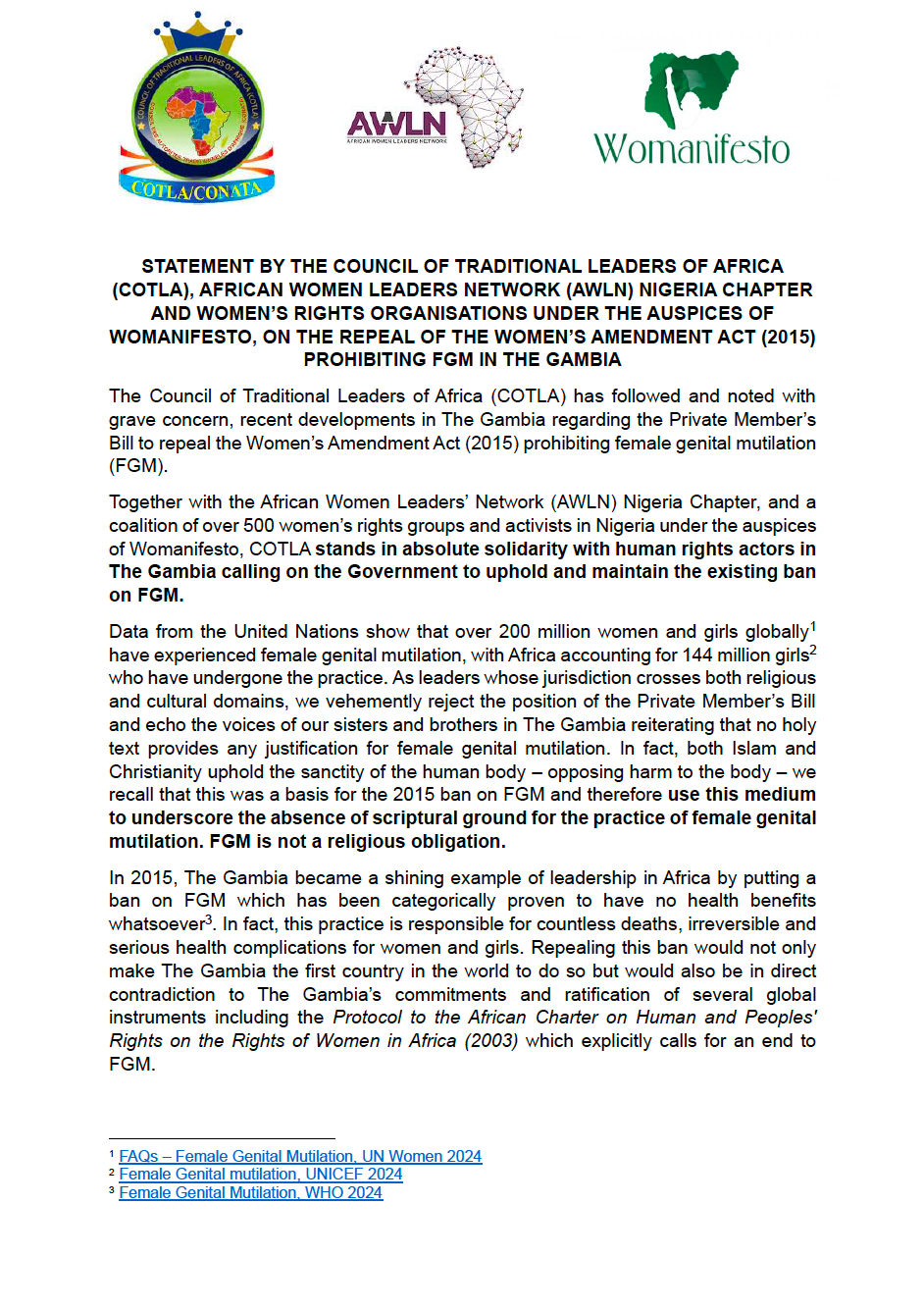
STATEMENT BY THE COUNCIL OF TRADITIONAL LEADERS OF AFRICA (COTLA), AFRICAN WOMEN LEADERS NETWORK (AWLN) NIGERIA CHAPTER AND WOMEN’S RIGHTS ORGANISATIONS UNDER THE AUSPICES OF WOMANIFESTO, ON THE REPEAL OF THE WOMEN’S AMENDMENT ACT (2015) PROHIBITING FGM IN THE GAMBIA

Together with the African Women Leaders’ Network (AWLN) Nigeria Chapter, and a coalition of over 500 women’s rights groups and activists in Nigeria under the auspices of Womanifesto, COTLA stands in absolute solidarity with human rights actors in The Gambia calling on the Government to uphold and maintain the existing ban on FGM.
Data from the United Nations show that over 200 million women and girls globally1 have experienced female genital mutilation, with Africa accounting for 144 million girls2 who have undergone the practice. As leaders whose jurisdiction crosses both religious and cultural domains, we vehemently reject the position of the Private Member’s Bill and echo the voices of our sisters and brothers in The Gambia reiterating that no holy text provides any justification for female genital mutilation. In fact, both Islam and Christianity uphold the sanctity of the human body – opposing harm to the body – we recall that this was a basis for the 2015 ban on FGM and therefore use this medium to underscore the absence of scriptural ground for the practice of female genital mutilation. FGM is not a religious obligation.